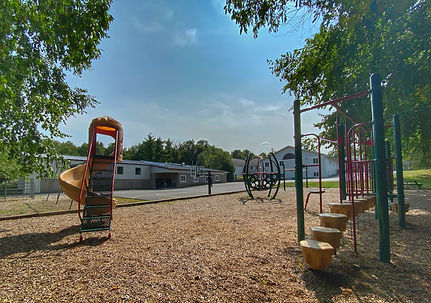
Language Arts
The goal of this program is to create independent, competent, lifelong readers and writers. Students are exposed to a wide variety of literary genres through read-aloud experiences. Shared reading using the enlarged text found in Big Books allows them to participate and behave like readers. Reading and writing instruction are embedded in meaningful daily activities within the thematic units presented in the classroom. Children make sense out of written language, understand the purpose of print and how it works, develop phonemic awareness, and write letters, words, and sentences. In our balanced literacy program, opportunities exist for rich language experiences, using spoken language to communicate with others, enlarging one's vocabulary, expressing oneself, understanding the oral speech of others, participating in a conversation, and using language to solve problems. The multi-sensory lessons teach to all learning styles and help students gain an understanding of how to construct letters.

Mathematics
Instruction in Preschool, Pre-K, and Kindergarten math curriculums lay the foundation for a child’s conceptual understanding of math. Concepts include gathering and making sense of information by comparing, contrasting, sorting, classifying, counting, measuring, estimating, recognizing, and repeating patterns. These concepts are continually reinforced daily through the use of children's literature, art, games, dramatic play, music, and movement activities that attend to all learning styles, kinesthetic, auditory, verbal-linguistic. .

Social Studies
Social Studies is developmentally appropriate and well balanced. The Lions Quest Character Education Program is used in the Primary School to help students begin to achieve a sense of self and others; learn to take responsibility for self and others; follow rules and routines; respect others and take initiative. Students learn to show empathy through group decision-making and taking turns. Student activities are hands-on and are introduced through integrated and thematic approaches and supported by dramatic play, music, circle time, games, literature, and the arts.
Science
Science is integrated throughout the curriculum to create a sensory-rich experience that appeals to all learning styles. Our discovery-based program introduces children to basic scientific principles. Some areas of focus include Seasons, 5 Senses, Life Cycles, Kitchen Chemistry, and the Human Body. Students experience a wide variety of hands-on activities that lead to the development of the scientific processes of categorizing, predicting, observing, comparing, measuring, experimenting, recording, questioning, and communicating.


Arts
Drama, Dance, Music, and Visual Arts are interwoven and addressed throughout the curriculum on a daily basis (National Standards for Arts Education). An experiential, sensory, hands-on approach is used in our curriculum as the children plan, design, create, and explore. Children mix paints, pound, and shape clay, build structures with blocks, boxes, LEGOs, recyclables, dance and move to music, dramatize stories, clap rhythms, listen to music, and sing chants and songs. Throughout the curriculum, an emphasis is placed on the important role of play (symbolic and pretend).
Physical Education
The National Standards provide the framework for Hampstead Academy’s curriculum and programming objectives. In Kindergarten an introduction to movement vocabulary and concepts will be used as a foundation for units presented. An introduction to related skillsets is presented and experienced by all. Lead-up games and activities are utilized to practice new skills learned in a game or modified activity format. Games with three to four rules are taught and played. One and two-step directions are given to teach skill work. Students begin to experience movement skills and attempt to apply concepts and vocabulary taught within the unit.


Spanish
Students are introduced to Spanish and continue yearly, building their mastery of this language. In Primary School, students will explore the Spanish language with songs, literature, games, and hands-on learning activities. Spiral learning and repetition are important elements when learning a language. Because of this, the program recycles and introduce new and old materials at the same time.
Technology
The use of technology at Hampstead Academy serves to further the facilitation of the school’s Technology Mission: Hampstead Academy will provide an environment that enables students to develop fluency in technology to become global innovators as it relates to real-world experiences and community responsiveness. The program is structured utilizing the ISTE NETS*S (National Educational Technology Standards for Students from the International Society for Technology in Education). Grades K-8 are involved in projects across their educational experience that incorporate technology and address standards for collaboration, innovation, research/media fluency, digital citizenship, technology operations, and problem-solvi.

